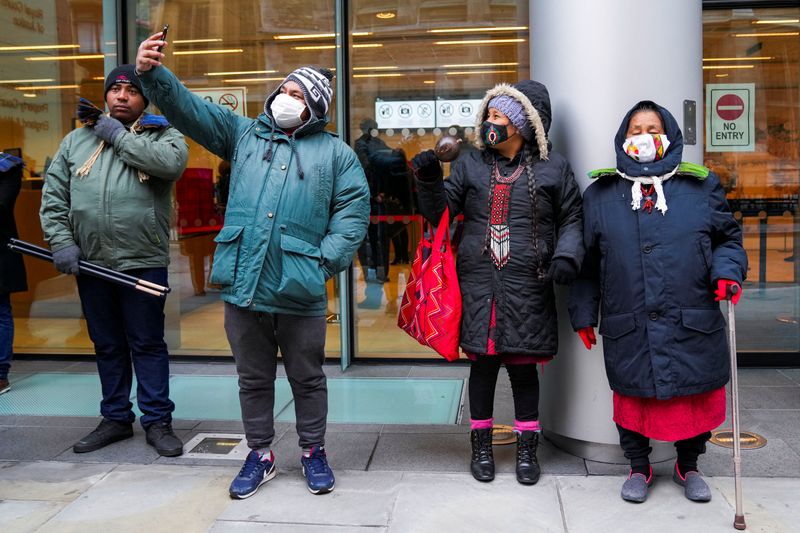By Sam Tobin
LONDON (Reuters) - Global mining giant BHP Group (NYSE:BHP) was on Tuesday accused of trying to "forever put off" the question of liability for a 2015 dam collapse that triggered Brazil's worst environmental disaster.
BHP is facing a 5 billion pound-plus ($6 billion-plus) lawsuit brought by 200,000 Brazilians at London's High Court over the collapse of the Fundao dam, owned by the Samarco joint venture between BHP and Brazilian iron ore mining company Vale.
The disaster killed 19 people as more than 40 million cubic metres of mud and toxic mining waste swept into the Doce river, obliterating villages and reaching the Atlantic Ocean more than 650 km (400 miles) away.
BHP, the world's biggest miner by market value, denies liability and earlier this month applied to join Vale to the case. Vale said in a statement that it "intends to contest any alleged liability".
The lawsuit, one of the largest in English legal history, was thrown out in 2020 before the Court of Appeal ruled in July that it could proceed. BHP has applied to the Supreme Court to overturn that decision and its application is pending.
Lawyers representing the claimants – which include hundreds of businesses, 25 municipal authorities and members of the Krenak indigenous tribe, some of whom flew to London for the hearing – said BHP was trying to delay the determination of liability.
Alain Choo-Choy said BHP's approach to the case was "the forensic equivalent of death by a thousand cuts", adding: "These victims suffered the collapse over seven years ago. They started their claim over four years ago."
He argued BHP was trying to "forever put off the question of substantive liability for another few years – that would no doubt be very convenient."

But BHP – which says the lawsuit duplicates legal proceedings and reparation and repair programmes in Brazil – argued that it was "not appropriate or even feasible" to have a trial on the issue of liability in early 2024.
Charles Gibson, representing BHP, said in court documents that the list of current claimants was "chaotic" and there was "continuing uncertainty" around whether thousands of individuals wanted to continue their cases.